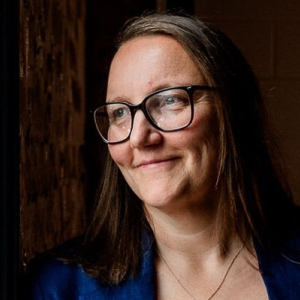You Really Don’t Have to Know Everything

Ausmed Insurance™
Protect your career, stress-free
$10m Professional Indemnity Insurance
1,250+ CPD resources
Heavily discounted for graduates
A Message to Graduate Nurses
Starting your nursing career is a moment of pride, excitement, and, if you’re anything like I was, a fair bit of fear. After years of study, endless exams, and clinical placements, you finally step into the real world of nursing, ID badge clipped on, scrubs crisp, and expectations high.
But here’s the truth I wish someone had told me when I graduated: you don’t have to know everything. In fact, no nurse knows everything, not even the ones you look up to the most.
I’m now a Nurse Practitioner working in Australia, with years of clinical experience across metropolitan hospitals and rural communities. I've completed postgraduate studies, sat countless credentialing exams, attended endless professional development workshops, and yet, every single week, I learn something new.
Sometimes it’s from a doctor, another nurse, sometimes from a patient, sometimes from a student nurse who asks a question I hadn’t thought of. Learning never stops in healthcare; it’s part of what makes nursing such a rich, demanding, and meaningful career.

Who wrote this Guide?
Sigrid Pitkin is a Nurse Practitioner and board member with expertise in clinical governance, research, and healthcare innovation. With a background in allergy research, rural healthcare, and nursing education, Sigrid has held leadership roles at Monash University, Monash Children's Hospital, and Murdoch Children's Research Institute.
The Myth of "Knowing It All"
New graduates often feel incredible pressure to prove themselves. Not only to patients, to colleagues, but most of all, to themselves. There’s a belief that if you don’t have an answer immediately, it somehow reflects poorly on your competence. But in reality, the most competent nurses are not the ones who pretend to know everything; they are the ones who know when to ask for help.
Nursing is too complex, too varied, and too human to ever be mastered completely. No single person can hold all the answers to every patient situation, medication interaction, policy change, or technological advancement. Healthcare itself is constantly evolving. Guidelines change, evidence changes, and the best nurses adapt.
Permission to Ask
One of the most powerful skills you can develop as a graduate nurse is the ability to say, “I’m not sure, but I’ll find out.” This simple sentence builds trust with your patients and your team. It shows humility, responsibility, and commitment to safe, high-quality care. It means you are putting the patient first, above your own pride or fear.
I promise you, asking questions does not make you look weak. It makes you look smart. It tells your colleagues you are engaged, thoughtful, and aware of your professional limitations, all hallmarks of safe practice.
The nurses and doctors you admire most, the ones who seem effortlessly competent, have asked thousands of questions over their careers. They have looked things up, phoned friends, consulted guidelines, and stayed back late studying cases that troubled them. None of us got here without help.
Build A Support System
Your graduate year is a steep learning curve, and having a strong support system makes a world of difference. Identify the colleagues who are approachable and who genuinely want to see you succeed. These might be clinical educators, team leaders, experienced nurses on your ward, or even allied health colleagues.
Seek out mentors, formally or informally. A mentor isn’t someone who has all the answers; it’s someone who can walk alongside you, share their mistakes, and help you reflect and grow. Don’t be afraid to ask for debriefs after difficult shifts. Share your wins and your challenges. Nursing is a team sport, and you are not alone.
When in Doubt, Check
Another important piece of advice: if you are unsure, stop and check. No task, not a medication, not a procedure, not a discharge summary, is too small to double-check if you have doubts. Patient safety comes first, and even the most senior nurses use guidelines, references, and each other to cross-verify.
Developing a habit of double-checking early in your career sets you up for long-term success. It also helps build confidence over time. When you know how to access information, critically appraise it, and apply it to your patient care, you become a true clinical asset.
Growth Over Time
Confidence in nursing does not come from never making mistakes; it comes from how you respond to them. It comes from developing good habits, using your critical thinking, and understanding that your knowledge base is always evolving.
You’ll look back in a year and be amazed at how far you’ve come. You’ll laugh at the things that once scared you (yes, like calling a MET call or inserting your first IV). You’ll gain a sixth sense for recognising when a patient is deteriorating or when something just isn't right. And that growth will continue throughout your career.
Every senior nurse you meet was once a terrified new grad. Every Nurse Practitioner, Clinical Nurse Consultant, or Director of Nursing stood where you are now. They didn’t get there because they knew everything from day one. They got there because they kept learning, they asked questions, and they stayed curious.
Final Thoughts
If you take one thing away from this message, let it be this: you are not expected to know everything. You are expected to care, to think, to ask, to learn, and to grow.
So be kind to yourself. Give yourself permission to be a learner. Take a deep breath, ask your questions, seek your answers, and keep moving forward. Nursing is a career built on lifelong learning, and today, you’re just getting started.
Welcome to the profession. We’re so lucky to have you.